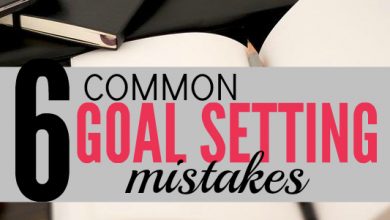
Self-Control Matters
Self-control is an effort that’s intended to help achieve a goal. Failing to control yourself is just that—a failure. Feeling in control is essential for our performance and motivation, especially in times of stress or undesirable situation. The worst thing you don’t want to see is losing your cool and launching an out-of-control outburst of rage which might lead to a dreadful consequence that you might regret later. Therefore, it is important to spend some time working on strengthening your self-control. The following tips will help you manage your anger and keep your composure.
Think Before You Act
Self-control is the ability to think before you do something. Slow down and try to maintain your cool. Think of the consequences of the actions before doing them, do not just react without thinking about the proper response. Give yourself a moment to calm down, it will help make the best decision possible. This skill is crucial as it can make the difference between being disruptive or making a great decision. Make it a habit to think before you act, this can help you avoid tons of problems along with the ways.
Focus On Solutions
When approaching a difficult issue, prepare yourself for the most difficult debate you will ever have. Spend some time organizing your thoughts and identifying what your real concerns are. Do not divert from your objective and argue for the sake of your ego. Focus on the solutions can avoid questions about reasons or general problems, asking “why” only serves to waste time. Instead, try to identify the specific problem or situation that you can solve. And do not be afraid to suggest other solutions.
Remember, where you focus your attention will vastly determine your emotional state. The longer you are trapped in the paradigm of the problems, the prolonged negative emotions will hinder your self-control. When you are truly focused on the possibilities, you will take to better yourself and your circumstances, you create a sense of personal efficacy that produces positive emotions and improves performance.
Hearing Without Listening
Try to practise the “Art of Listening”, be communicative and be a better listener. Understanding where people are coming from and in the view from their perspectives, you will lessen the chances of keeping things bottled up. If you are not opening up and trying to impregnate your perspectives on others, the problem will come to a dead not. And most often, an outburst is a culmination of building frustrations and perceived slights. Expressing your feelings and knowing why and where someone is coming from will help you keep your rage at bay.
Stay Positive
As it stated,” where you focus your attention, determines your emotional state.” So, feed yourself with any positive thoughts that will refocus your attention and banished all negative thoughts and speech from your daily life. When you are feeling good and things are going well, it is relatively easy for your self-control. On the contrary, if your mind is flooded with negativities, self-control will be greatly influenced and challenged. The whole idea here is that you must be able to shift your attention from negative to positive, so don’t lose your focus.
Learn How And When To Say No
Know your limitation to prevent the negative effects of over-commitment. Research shows that people who have difficulty saying “No” is more likely to experience stress, burnout and even depression, all of which erode self-control. Saying “No” is indeed a major self-control challenge for many people. The simple word “No” just don’t want to come out and you ended up with an overflowing schedule or nagging feelings of dread as the event approaches. So, don’t be afraid to say No when it’s time to say so. Doing so shows that you are committed to honours your existing commitments and allows you to successfully fulfil them.
Meditate
Meditation might be a useful tool to train your self-control. All you need is to spare a few minutes of your time to focus on nothing more than your breathing and your senses. Simple techniques like Mindfulness or Breathing will help to improve your self-awareness and enhance your ability to resist destructive impulses. That is the main reason why Buddhist monks always appeared to be calm and in control. So, don’t be afraid to give it a try.




